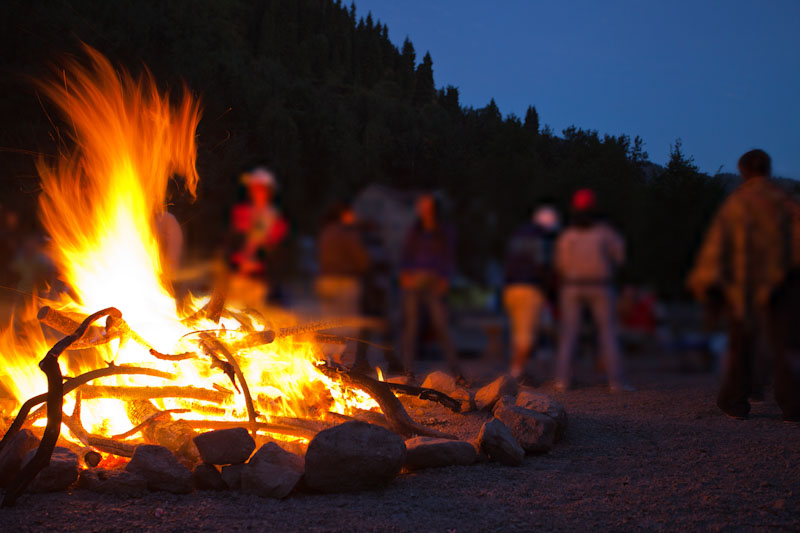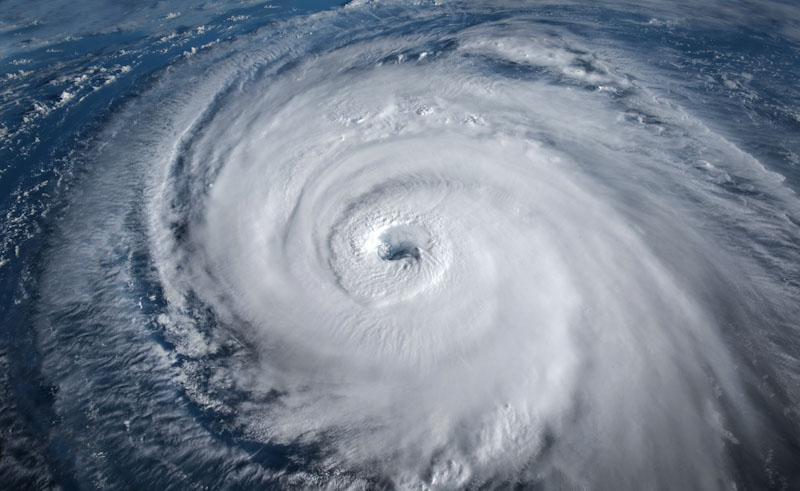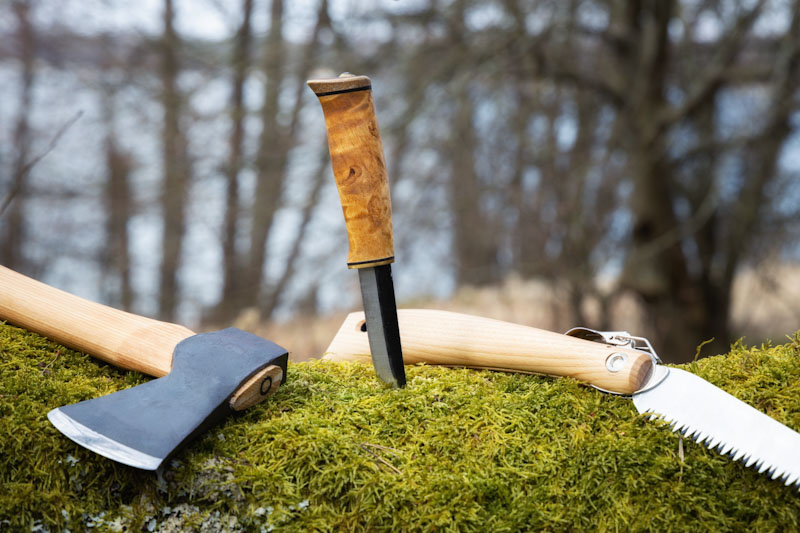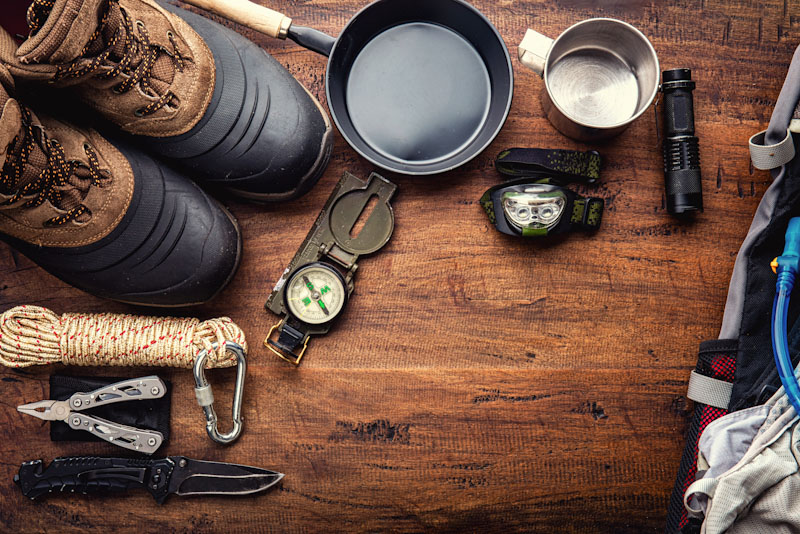It’s standard fare in the prepping community that we say we won’t let anyone in, once we’re in survival mode. We prepare for our family’s needs, and we don’t really have enough food to take care of friends, neighbors, or even family members. That’s now… but what about when a disaster happens?
The truth of the matter is that it will be very hard to say “No!” to family members or even friends, should they come knocking on our doors during a time of crisis. We may think that we’ll turn them away, or maybe get them to leave by offering them a little food; but it won’t be that easy. In many cases, their survival plan, if they have one at all, is to depend on us; even if we’ve already told them they can’t.
Fortunately for me, my family lives a couple of states away; so, there’s little chance of them showing up at my door. On the other hand, my wife’s mother and brother live in the next town over, close enough that they could easily drive here to be with us. And I’m sure there’s no way that my wife would say no to either of them. She’s more likely to go pick them up and bring them to our home, if there looks like there’s going to be any sort of a problem. She did that the last hurricane, so why would I expect anything different for the next problem?
I suppose there are some of you out there, who will succeed in keeping their families out of their house, in the wake of a disaster. If you can do that, without alienating your own spouse, more power to you. For the rest of us, I think we may need to start thinking about how we are going to manage our survival plan, with all those extra people in our homes.
For that matter, those of us who have survival teams need to think about that a bit too. Most preppers’ survival teams are scattered all over town, not living together on one street. That means that in a time of crisis, when they need to be working together, they won’t be close enough together to help each other out. About the only way they’ll be able to work together for their mutual benefit, is to come together in one location, probably the largest house that any of the team owns.
My personal survival plans used to include my children returning home, with their families, in a time of disaster. For that reason, we didn’t “downsize” when the kids moved out. Things have changed since then and I no longer live in the same city as my kids; but we can still bed everyone down, when they come for the holidays.
So, the real question for all of us, is how are we going to manage with all those extra people in our homes?
Put Everyone to Work
Having extra people around to help with all the survival tasks isn’t all bad. There’s always a lot to do in any survival situation; more than you can handle yourself. Put those extra bodies to work, under the premise “If you don’t work, you don’t eat.”
Remember, these aren’t skilled survivalists, so you’ll probably have to train them how to do anything you need them to do. For that matter, you’re going to have to train them on everything, from how to use the toilet, when there’s no running water, to how to conserve water so there’s enough for drinking and cooking. Don’t expect them to know how to pull weeds, unless they are gardeners. You’ll probably have to teach them the difference between the plants you are growing and the weeds.
One of the first things you’ll have to do is establish your authority. One might expect that to be a given, considering that they’re in your home; but you can’t count on that. There’s a good chance that each of them will have their own ideas about what should be done and none of those ideas will help ensure your survival. If you don’t establish your authority, you’ll find yourself having to do all the important survival tasks, while your houseguests just make things harder for you.
Your authority becomes especially important when it comes to the unpleasant tasks associated with survival, like dealing with human waste, hauling water and cutting firewood. People who are used to doing desk work or being on the computer all day are going to have a hard time buckling down to that sort of hard work and would rather do something “more important,” while leaving those mundane tasks to you. They don’t realize that those mundane tasks will be the things that ensure your survival.
Bedding Them All Down
The reason I mentioned the “biggest house” earlier is the problem of bedding everyone down. Most of us only have enough beds and bedrooms in our homes for our immediate family. Having a guest room in the home has become a luxury that only people with higher incomes can afford.
Okay, so what do we do? I mentioned earlier that we manage to bed down all the kids and grandkids, when they come to visit for holidays. We do that by making the best possible use of the space we have. One family gets the guest bedroom, one gets the family room, and one gets the living room. Between sleeping on sofas, air mattresses, and pallets on the floor for the younger kids, we make do.
That’s the same sort of thing you’re going to need to do, with perhaps some extra innovation. It’s not impossible, even if it’s not something you’re used to doing. Families used to get together on a regular basis, everyone piling into grandma and grandpa’s house. That usually meant the kids had to sleep on the floors, but their young bodies can handle that better than we adults can.
There are some things you’re going to need, in order to bed everyone down. Specifically, you’re going to need plenty of blankets and pillows, as well as something to put on the floors, making it a bit softer. Foam is better than air mattresses, as those air mattresses can always get holes in them; but foam takes up more room to store. Nevertheless, I have always kept foam around, that I salvaged out of dead mattresses. Often the only part that has gone bad is the upper part, leaving a good, large chunk of foam that can be salvaged. If you’re going to use air mattresses, make sure you’ve got plenty of patch kits in your emergency supplies.
Enough Food to Eat
Food will be the biggest concern, with all those extra bodies around, especially when you consider that they will be bodies that are not accustomed to the idea of a survival diet. You can bet you’ll get as many complaints about there not being enough food to eat, as Moses got from the Israelites eating manna in the desert.
I’ve long said that the average “survival garden” is nowhere near enough. There are people in this country who grow all their own food in their backyards. But to do so, they’ve converted their entire backyard into a garden. With extra people living in the home, you’d better plan on not only converting the entire backyard into a garden, but the front yard as well.
That’s going to be one of the most important tasks for all those new hands to work on; building and then caring for that garden. Without it, none of you will survive for very long. Be sure that you have plenty of seed, fertilizer and other garden chemicals stocked up; then start those extra hands out pulling up your grass and planting that seed. Don’t let a single seed go to waste.
Obviously, that garden is for the long-term food needs; but you’ve got to consider the short-term ones as well. That means beefing up your stockpile of food a bit, especially in low-cost, high calorie foods. I’d stock up as much as you can, over and above what you were already planning, on beans, rice, pasta, grains, and baking supplies. It may not be an exciting diet; but it will be food.
How’s Your Water Situation?
Water is a big concern for most of us. More than anything, we preppers depend on rainwater capture to be our water source in times of crisis. But will your rainwater capture manage to keep up with your needs, with all those extra people in your home? Worse than that, will your water storage keep up?
Form the various calculations I’ve done, there are few places in the country where there isn’t enough rain to survive, if we could capture all the rain that falls on our roofs. The dual problems we face are that we aren’t capturing all of it, but only part of it and that we don’t have enough storage for everything we can catch. So, even if we are able to catch more, we can’t store it until we’re ready to use it. We generally have to use it when we have it, or lose it.
Unfortunately, rainfall in most parts of the country doesn’t happen on a nice, consistent schedule. There are almost always some months that are wetter than others. Having enough water during those wet months probably isn’t going to be a big problem; but unless you can store everything you can catch, it’s probably going to be an issue during the dry months. I’m not going to go into detail here; but you definitely need to think about how to expand your water storage.
Additionally, you need to review local water sources, looking for surface water that you can use to augment what you’re getting from rainwater capture. Hopefully there will be lakes or rivers nearby that you can harvest water from. If so, you’ll need some way of hauling that water back to your home.










radar | May 9, 2024
|
Good article. I’m 72; introverted, and not bossy. My dad told me that when he was a boy during the Great Depression in N.W. Wisconsin, all his paternal relatives moved into my dad’s father’s home because it was in a more prosperous town. There were 18 relatives (besides 5 family) = 23 people in a fairly small 2-story farm house. The helpless “free-loading” relatives got so bad for my dad’s father that he abandoned his own home and traveled to Montana with his marriage family to work the copper mines for a year; but after the youngest newborn baby died, they moved back home and the father threw everyone out of the house.
I have untested thoughts on this subject, the first being that “everyone has to work”-even kids at age-5. They are close to the ground and flexible. They can spend all day picking up twigs and sticks into huge piles (in dry places) for fire-start kindling/tinder; they can also pile rocks out of a garden area. If they don’t do their “all day long” basic jobs, they don’t eat (that is my rule #1). I’ll show them were the outdoor weeds are that they can pick and shove it into their mouth to feed themselves (that rule is for everyone, including me).
There are certain jobs that take a long time to manufacture. Water is one. Find it, haul it, clean debris, boil it (and keep the fire burning), then clean containers and store and keep doing it all day long. Anyone who refuses to do the job assigned to them “does not eat a prepared meal”. They will be shown were the weeds are to dig out–but they don’t get priority use of tools that are used by others “doing their assigned job”.
When all of one’s nearby relatives move into one house–it could be a good idea to “break up” power-struggles. One way to do that may be to put all the women and girls in one bedrooms so that they can form a political party, and separate from the guys. That way it is not a matter of one person strutting, as if to become the house President over everybody–but now there is a whole team, of the same gender, strutting what they will do and what they expect others to do to help “the whole”. America is familiar with a two party form of government; and definitely not everybody for themselves and everybody fussing and complaining. That way also, the Governor does not have to listen to complaints from everyone, one on one; but instead the whole group can have a complaint day, once a week, and all can problem solve better ways to deal with problems.
IT CAN BE MORE IMPORTANT “for the old man or home-owner” TO “HIDE RESOURCES FROM FAMILY THAT COMES TOGETHER; AT LEAST UNTIL EVERYONE IS WORKING AS A TEAM. In a very real sense, when multiple married households converge on one home—they are not married anymore “in that home”; yes kids still have parents and a family; but Dad and mom need to mix with their own kind to examine needed tasks for now and winter (if all remain together). The Home Owner must be the governor of the whole group, because s/he knows the neighbors and can facilitate “trading in the neighborhood”. It may be that right next door is a neighbor with a huge garden and panty, but who needs help with tasks due to age or infirmity. That ought to be the Governor’s job, who can be a go-between the men and women and neighbors.
If there are several babies/toddlers, the women can figure out how to rotate people “in and out” of toddler-care. Breast-feeding moms will always be fed.
I read this article and commented in Late Spring, Wisconsin–so I write from that perspective; and I will not address matters like Martial Law, neighborhood security. If someone has to help with that, consider trading your time for something you need, because considering how large your extended family may be, they probably will not need security help from the neighborhood.
Everyone needs to be reminded that “more stuff needs to be stored for winter (or the off season)”. So first shift work is for today and tomorrow. Second shift work is for winter.
In winter everyone may need to sleep in the same room so their body heat can keep everyone warmer. But otherwise it will be best to keep the women/girls separate from the men and boys. If all are sleeping in the same room, it will be important for everyone to have their own wide-mouth “pee bottle” to go to the bathroom and not stumble over people. Once a week get everyone together for a “gripe session;” but that week of adjustment will also be needed, because it takes more than one day to develop a different routine.
julie Dugan | May 22, 2024
|
After reading this article, I have over the years read A LOT of articles on this website. it seems that this refers to one who does not live in a city as large as Los Angeles, as I and my family do. Before even starting beyond a few simple items, I feel defeated in this area. If there are any books or articles that we city dwellers can read regarding when SHTF, whatever that may be, My husband thinks I have lost my marbles in this regard, but I believe being as prepared as you can be for any situation is half of the battle.
Thank you for taking time to read this!
radar | May 23, 2024
|
Second comment; about my in-laws that are “some miles away” too many miles away.
IF YOU ARE ON GOOD TERMS WITH YOUR INLAWS, you might FIRST evaluate which family or in-laws own the largest pieces of property that COULD be converted to Gardens and dual-households on the same property.
My property is a corner double-lot and a 1930s era street where MDs and Nurses lived; down-street from a 1930s hospital—prestigious back then (long gone now); and most properties are still well-kept up; but the neighborhood is no longer prestigious. The thing is that I know I have to create “outdoor hiding places” for garden pots, etc. (I got to beautify my garden areas to fit in my neighborhood). I can’t produce on my property enough food for even my wife and I; but I don’t poison my lawn and have dandelions growing on purpose—especially when someone begs for food; along with ten other edibles weeds (backup food, as needed); and even in winter dandelion roots can be dug (when some coals thaw the frozen ground).
Another relative a four hour drive away has a huge backyard but it is on the side of a hill and the dirt isn’t so good; but they still have space. The other two relatives have large properties, but for different “personality reasons, including large families, there is nothing significant about that. One of the problems with relatives is their ages and the ages of their children, and personalities. If everybody is older, and weaker, and maybe with health problems—there is not much that they will be able to do; and all of them (even me) will be set in their ways.
But if you did have a “friendly relationship” with a relative; and if the relative had some good acreage; you could inquire about building a storage area “living space” at a far corner. Why? In military language you would be living in an “outpost” for guard duty (at a far corner of a backyard)—just in case—to sound off a warning if there is a problem. Your site would be hit first, because it is smaller and it reduces your support for a larger effort on “the big house”. None-the-less, having such an outpost on a larger property would be advantageous to you and probably the property owner, especially if you are “way out-back; and not strutting with the property owner”, beyond doing your share of duties.
Since older folk tend to have larger properties; it can be advantageous for them to permit “a disguised work-camp” type of usage of a relative way back in the “back 40” (an old saying about the back 40 acres of a ranch-farm; and if there was that much land). Older folk know they are prone to weakness, so younger folk who live in small lot towns with lots of neighbors could have an advantage as well as the property owner to “talk about it” as a future “what if” feasibility.
This can make for an interesting discussion (but would require many discussions over a considerable period of time) for people to get orientated to the concept, how it might work out, what the benefits could be. It is worth a talk, even if the talk just examined a SHTF. It is worth a talk because lots of people don’t really like the neighborhoods they live in and don’t trust their neighbors; and older people have to figure out lots of things about every passing year. Many times people do change their properties, but not necessarily with a view to a SHTF. So just talking about it (over the course of a year or two) and talking about it as a potential future option, could be enough to “have access to a retreat location”, where you begin to set it up before you need it. And the more time there may be to prepare can be a great blessing.
Because I am locked into my gardens, I am examining how would I stack firewood around parts of my perimeter should utilities go down during a winter. Hell! All my neighbors have thin fences; so if I can safely stack firewood (and cover it in an ornamental way)—I am way ahead on having wood for outdoor water purification, and cooking, and for a fireplace, and… that is what prepping is all about, getting yourself way ahead. The same thing with a home. I have a basement (it is part of my storage area and “junk pit”). I have known all my life in this region that during tornados the safest place is in the basement. But have I put up a wall of bunkbeds, even for me and mine? NOPE! Have I redesigned its use? NOPE. Well, if the SHTF when my grown kid and family was visiting—I am not ready. I am not prepared. Yes I am prepared as if I were an individual and even a couple; but not as a family—-WHEN I CAN MAKE BETTER USE OF THE SPACE I HAVE right now, if I ever get started doing it.
I am just sharing thoughts ABOUT FAMILY, because in my house and among relatives IT IS FINE-OK TO TALK ABOUT “What if this?” How would I do it? If your “family member” were visiting, and stuck here, what would be a better way to organize two households in a house currently set up for one? Heck, in my house that unused basement could be a makeshift neighborhood medical clinic; and I have an enclosed porch also that is unused. What would be needed to set up a clinic, if I were so able and inclined?? Can you imagine the value of that in a neighborhood if the SHTF? Do you think your house would be raided, when anyone in the neighborhood may need your “clinic” support? I don’t think that would happen. I think your place would be protected (but only if it were pre-set up, which is “preparedness”); and there are “services” that are as equally important as provisions (but only if prepared). It is also not hard to re-take a First Aid course (and there are lots of other courses). I have bunches of books; I have some videos. I have worked in three hospitals, every year we had to recertify the level of safety-health-care that we employed at our level and in our jobs. What I am trying to say here is that in a SHTF, if you delivered already your own two kids (so you know something about it), you can’t be faulted by anyone for “trying to help a mother have a baby—in your home clinic!—and in a SHTF—and childbirth can easily “scare the crap out of family members” (too much anxiety and not enough clear thinking, especially among the men). Most everyone has band-aids, burn cream, etc. You can’t be faulted for something going awry. It is not hard to put on a tourniquet, and release it every 20 minutes, until you are able (if appropriate) to disinfect a wound and sew it up. Any care you give will be recognized as make-shift clinic care. Your house will be protected for what you are willing to do. And others in the neighborhood will protect you. Even gangs would likely protect you and feed you…but you have to be set up (if you chose that); and you may need to re-certify what you can do and what you can’t do. And if you need to practice, go buy a big ham and practice making slices and sewing them back up.